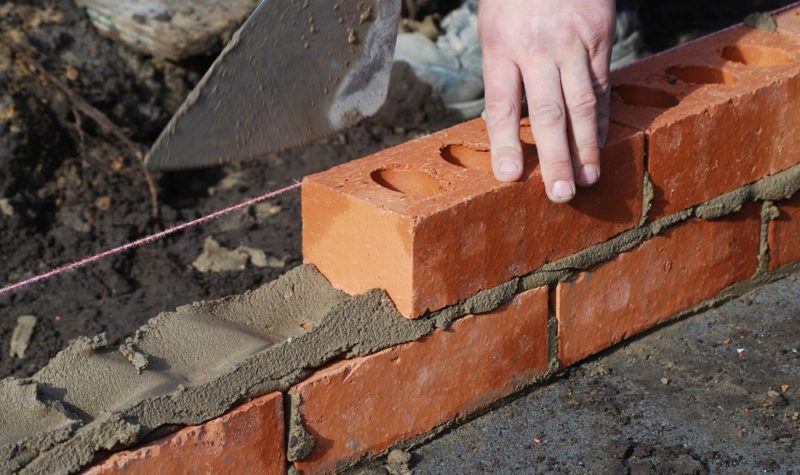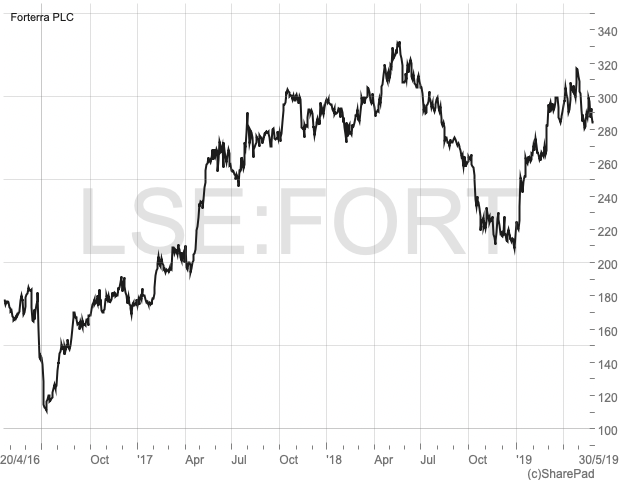Forterra is building strong foundations for growth

Sustainable growth, leading margins and cash generation combine to give a strong financial profile at building products firm Forterra, writes Mark Watson-Mitchell.
Last week’s trading update from Forterra (LON:FORT), issued at its AGM, stated that the first four months of the current year was in line with expectations. It was underpinned by continuing positive levels of activity in the new build housing market.
Forterra is a UK leader in manufactured masonry products, with a unique combination of strong market positions in clay bricks and concrete blocks, complemented by a well-rounded portfolio of bespoke construction products.
| Master Investor Magazine
Never miss an issue of Master Investor Magazine – sign-up now for free! |
On the face of it, that description of its activities may seem to you to be very boring. However, I believe that its shares ae cheap and offer an attractive yield.
The company was formerly Hanson’s UK building products division, set up in the early 1960s. Over the subsequent years it built itself up through several acquisitions: Butterley Brick, London Brick, Marshalls Flooring, Marshall Clay, Thermalite, Red Bank, Formpave and most recently Bison Precast.
In 2007 Hanson was acquired by Heidelberg Cement, who sold it in 2015 to Lone Star Funds. It floated a year later.
Today Forterra is the second largest manufacturer of bricks in Great Britain. It is also the only manufacturer of the iconic and original Fletton brick, which is sold under the London Brick brand. The company operates nine brick manufacturing facilities in the UK, with a total production capacity of approximately 570m bricks per annum.
The company is also the second largest manufacturer of aircrete blocks in Great Britain, operating from two manufacturing facilities, with a combined annual output of 825,000 m3. These blocks are sold under the instantly recognised Thermalite brand. Forterra also produces aggregate blocks at two dedicated sites, with a combined production of 275,000 m3.
Itsbespoke products range comprises precast concrete, concrete block paving, chimney and roofing solutions, each of which is primarily specified made-to-measure or customised to meet the customer’s specific needs. The bespoke products business operates from four manufacturing facilities in the UK.
Forterra’s products have a very broad customer base, comprising residential housebuilders, contractors and sub-contractors, builders’ merchants, and specialist brick merchants. It has long standing customer relationships across all channels.
The group’s end market exposure can be divided between the commercial construction, residential RMI (repair, maintenance and improvement) and the residential new build markets. It has strong market positions in clay bricks and concrete blocks.
The AGM trading update stated that its expectations were backed by brick sales in the first four months being modestly ahead of the same time last year, whilst precast concrete floor beam volumes in the same period were good, giving an encouraging forward indicator for housebuilding activity.
The cost base has been on the increase, however, and the company has agreed price rises with most of the major customers in order to offset this.
Although, admittedly, the comparative time last year saw poor weather, the company was pleased to report that sales were nearly 8% ahead in the initial period. Based upon the good start to the year, together with feedback from major customers, the company sees the expectations for the full year as being maintained.
A major push in sales will be reflected when the new brick factory, the largest and most efficient in Europe, gets underway. Planning approvals have been received and this is seen as a very positive development. It will, when in operation in a couple of years’ time, be capable of producing up to 180m bricks a year – current capacity is just 85m bricks per annum.
The group has an impressive track record of demonstrating sustainable growth, attractive margins and good cash generation. To date it has been well invested, with an efficient manufacturing asset base with production scale advantage and capacity to meet growing market demands.
Last year, on £367m of sales it made £64.80m pre-tax, worth 26.50p per share in earnings and with a healthy 10.50p dividend. Current year estimates are for £383m of revenue, £68.02m of profits, 27.37p of earnings and 11p per share in dividend. Next year some £398m of turnover could see profits of £71.08m and earnings of 29p per share, with a dividend of 11.59p.
With 202.89m shares in issue, the company’s market capitalisation is just £580m.
Its equity holders includes leading institutions like Investec (9.99%), Aberforth (5.74%), JP Morgan (5.03%), JO Hambro (5.00%), Polar Capital (4.93%), Pelham Capital (4.90%), GLG Partners (4.04%), AXA Investment (3.97%), Woodford (3.33%), and M&G (3.25%).
Although it operates in very cyclical markets, the shares of Forterra at just 286p are not taking much for granted. The rating is really quite a low one considering the company’s age, product spread and market leading positions. I wouldn’t be surprised to see the shares hitting 350p within a year.


Comments (0)